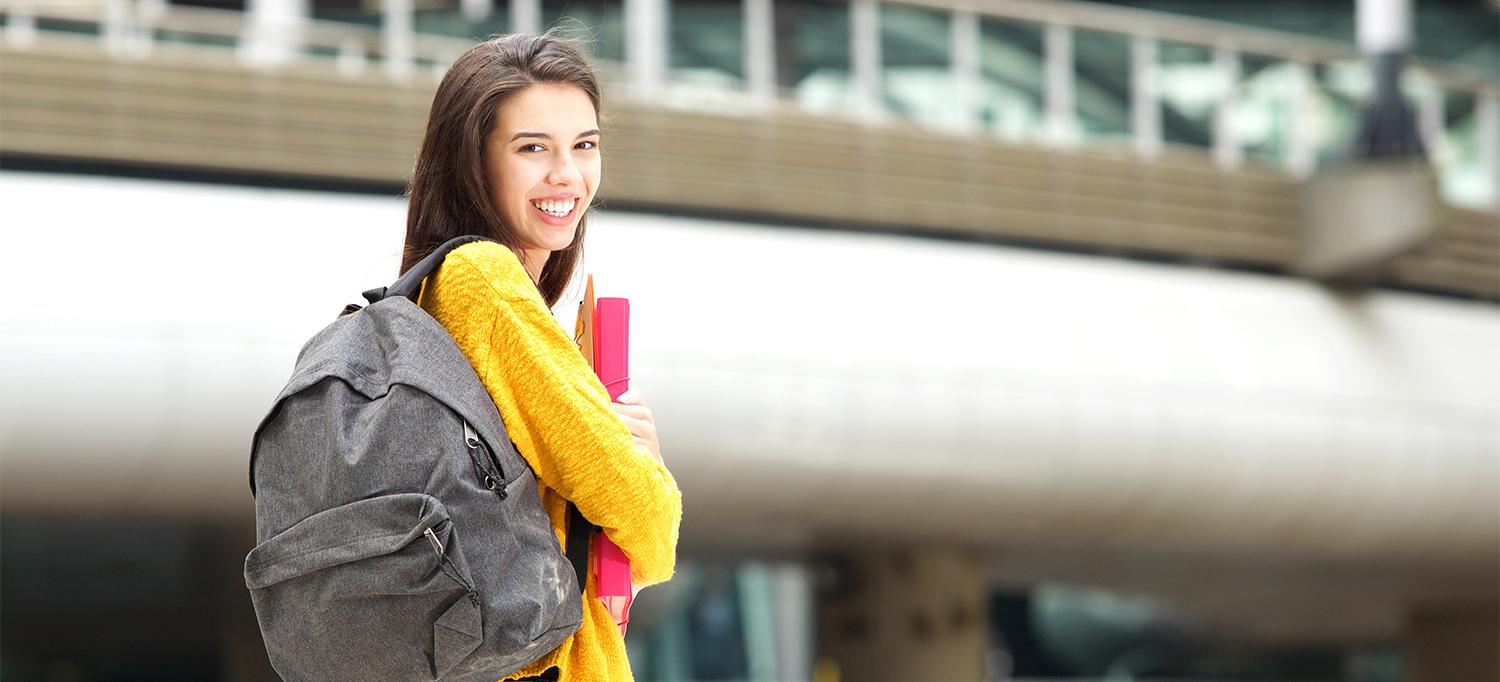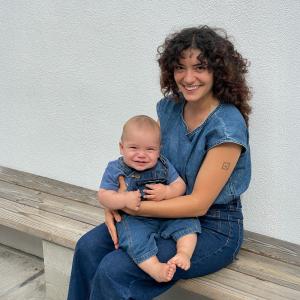
Photo: m-imagephotography/Getty
As summer wanes and kids and families prepare for the back-to-school season, one of the most important items on the to-do list for middle schoolers, high schoolers, and college students should be a COVID-19 vaccine, say NYU Langone experts in pediatrics and infectious diseases.
People ages 12 and older are eligible for the 2-dose Pfizer–BioNTech vaccine against COVID-19. Doses are delivered three weeks apart, and full vaccination is achieved two weeks after the second dose. So now is the time to schedule your teen’s vaccination appointment to protect them before school starts.
“The COVID-19 vaccine is safe for children, and vaccines are important for everyone,” says Adam J. Ratner, MD, director of the Division of Pediatric Infectious Diseases and pediatrician at Hassenfeld Children’s Hospital at NYU Langone. “The more people who are vaccinated—including children—the lower our infection rates go, and the more we can open things up and return to normal.” That includes schools, colleges, and universities, many of which have committed to full in-person learning come September.
Below are reasons why you should feel confident that vaccination is the right decision for your child.
COVID-19 Is Still a Real Threat
COVID-19 rates in New York have declined from where they were at the height of the pandemic, but they are on the rise again as the more contagious Delta variant spreads. The number of people with severe illness who require hospital care is also rising again. While it’s rare for COVID-19 to cause serious illness in school-age children, it does happen.
“There is a misconception that COVID-19 isn’t serious in children, and that’s not true,” says Dr. Ratner. “Children can get very sick from COVID. They can even experience some of the long-term symptoms we’ve seen in adults who have recovered from COVID-19, such as exhaustion and difficulty concentrating.”
The Delta Variant Is Highly Contagious
The Delta variant, the dominant form of the COVID-19 virus in the United States, is more transmissible than previous forms of the virus and as contagious as chicken pox, a disease that before vaccination was notorious for spreading quickly through classrooms.
COVID-19 vaccination is the best way to protect students, as well as teachers and staff, from COVID-19 outbreaks. This has the potential to minimize school closures and other disruptions in essential academic and social services, as well as the activities that teens are looking forward to, such as afterschool clubs, sports, and social events.
The Vaccine Is Safe for Teens
Hundreds of millions of doses of the COVID-19 vaccines have been distributed nationwide, including more than 10 million doses received by people ages 12 to 18. The Pfizer–BioNTech vaccine, which is the only vaccine currently approved for those 12 and up, has proven to be exceedingly safe, with very few serious side effects that require additional medical intervention.
“The danger of not getting vaccinated is way higher than the risk of any side effect,” says Dr. Ratner.
The newness of the vaccine has been a cause of concern for parents, Dr. Ratner says. But it need not be because based on intensive research into vaccines in general, side effects generally do not happen beyond six weeks after vaccination. During clinical trials for the COVID-19 vaccine, participants were monitored for eight weeks, and no long-term adverse events have been detected.
Side Effects Are Mild
The side effects of vaccination for children have been the same as is seen in adults: sore arm, fever, fatigue, and muscle aches that go away within a couple of days. Side effects like these are actually a good sign because they signal that the immune system is responding to the vaccine and creating the antibodies needed to fend off infection.
Sara Siddiqui, MD, pediatrician at NYU Langone Huntington Medical Group, recommends ibuprofen or acetaminophen if needed to ease your child’s discomfort after the shot, and advises drinking lots of water before and after a vaccination to help limit side effects.
“If a parent is concerned about side effects, I tell them to call me with any questions,” Dr. Siddiqui says. “After receiving the shot, you can always bring your child in, and we will examine them to make sure everything is OK and that the immune system is acting exactly as we expected.”
It is true that there have been reported cases of myocarditis, or inflamed heart muscle, and pericarditis, which is inflammation around the heart. This has been seen mostly in young adult males ages 16 to 24 after the second vaccine dose. Symptoms include shortness of breath, heart racing, and chest pain, which generally occur four to five days after the shot.
Paulo R. Pina, MD, MPH, network pediatric medical director for the Family Health Centers at NYU Langone, has not seen myocarditis in any of his patients, and stresses that it is exceedingly rare and in most cases not dangerous. “We do think this is related to vaccines, but most reported cases have been mild,” says Dr. Pina.
Vaccinating Teens Protects Younger Children
Clinical trials evaluating the safety and effectiveness of the vaccine for younger children are ongoing, with results expected this winter. Until then, vaccinating teens—and adults—is an important way to protect children under 12 from the virus, says Dr. Ratner.
“Even if we can't vaccinate all the younger children yet, we want to vaccinate everyone else because that will limit the spread of the disease,” he says. “The more we drive the infection rate down, the more we block transmission. That’s how we protect younger kids.”
Teens Want to Be Vaccinated
In their practices, Dr. Siddiqui and Dr. Pina regularly talk to teens who are eager to be vaccinated. They are desperate to move past COVID-19, and they are already seeing how vaccination can help make that happen.
“The kids are ready to be vaccinated,” says Dr. Siddiqui. “They want to go to parties, to be on sports teams, to be with their friends. They don’t want this school year to be like last school year. Vaccination is how we help life get back to normal for them.”
All New York City public school students, as well as many students in surrounding schools districts, will be back to school full-time in the fall. The more students that are vaccinated, the less likely the virus can spread through classrooms. Less transmission means fewer missed school days, quarantine periods, and remote learning, and more normal school life.
“If you’re sending your child back to school unvaccinated, the risk of COVID-19 infection is much greater than any risk that comes from vaccination,” says Dr. Pina.
Vaccination Does Not Affect Development
There has been no evidence of the COVID-19 vaccine, or any vaccine, affecting puberty or overall growth and development. The Centers for Disease Control and Prevention’s recommended immunization schedule includes more than 20 vaccine doses by age 2, and this protocol has not shown any impact on child development.
The human papillomavirus (HPV) vaccine, which is also given to children starting at around age 12, has shown no effect on pubertal development, and so there is no reason to believe that the COVID-19 vaccine would.
“These vaccines are safe, they are important, and they do not affect growth or development,” says Dr. Ratner. “The best thing a parent can do is bring all of their concerns to their child’s pediatrician, so they can get good information from a source they trust.”
Making a Vaccination Appointment Is Easy
Anyone age 12 and older is now eligible for the COVID-19 vaccine. You can schedule an appointment for your child at one of our vaccination locations through your child’s NYU Langone Health MyChart account.
“We want to get as many children protected as possible,” says Dr. Siddiqui. “So please, bring your child in for vaccination.”

